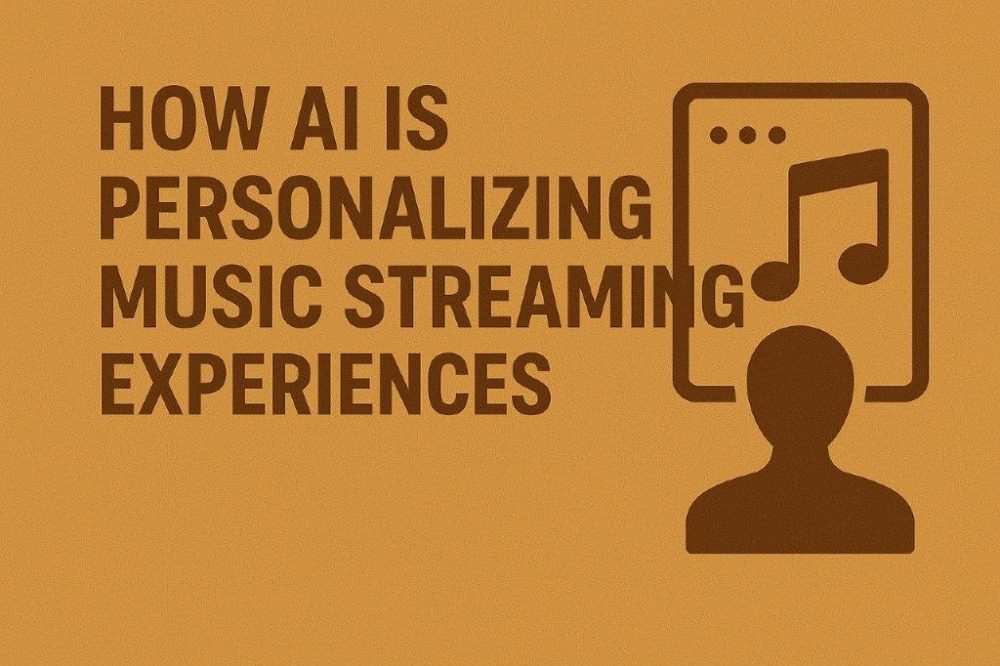The old days of simply shuffling an MP3 library are long gone. Nowadays, music streaming experience has become a complex, hyper-personalized journey, which is largely influenced by the use of Artificial Intelligence (AI). From the moment a user signs up, every click, like, skip, as well as search are fed into advanced machine learning models, which plays an important role in transforming a huge, overwhelming catalog into a curated, evolving soundtrack that is personalized precisely to individual tastes. AI has considerably reshaped music discovery, while moving it from passive radio listening to an active, suggestion engine which keeps listeners engaged as well as loyal to their preferred platforms.
The Engine of Recommendation: Machine Learning at Work
The essential aspect of personalized music streaming lies in recommendation algorithms, which are mostly driven by Machine Learning (ML). The most widely used technique is collaborative filtering, which is capable of evaluating a user’s behavior, like which songs they play, save, as well as skip, and further comparing it to the behavior of millions of other users. In case User A and User B share similar listening habits, the algorithm suggests songs User B likes which User A has not heard yet, and vice versa. It essentially acts as a large-scale, automated “people who like this also like that” system.
In addition to this, advanced AI is also capable of implementing natural language processing (NLP) as well as audio modeling. NLP is capable of evaluating text data, including song lyrics, artist biographies, along with user-generated content, for understanding the thematic as well as emotional context of music. This enables AI to make nuanced, mood-based recommendations, going far beyond just simple genre tags.
Deep Dive into Audio Features
The real-time, granular personalization is usually attained through deep learning models like convolutional neural networks (CNNs). These powerful AI tools are capable of evaluating the raw audio of every track, including the very “decibels” of the music. They are used for extracting complex features like tempo, rhythm, key, instrumentation, as well the energy of a song. By simply mapping these acoustic features to a user’s preferences, AI is capable of suggesting musically similar tracks even if they come from vastly different artists or genres, which in turn ensures a completely fresh discovery experience. Spotify’s famous “Discover Weekly” is an example to this hybrid approach, which is capable of constantly offering songs that feel both new as well as perfectly aligned with a listener’s evolving taste profile.
Beyond Playlists: Contextual Curation
The recent improvements direct personalization from static playlists into real-time, contextual curation. AI is swiftly learning to account for the user’s environment as well as emotional state. For instance, platforms are combining features which leverage data like the time of day, location, or even voice commands for tailoring the music. Asking for “upbeat music for a morning run” or “calm jazz for studying” usually generates results that are instantly adjusted to that specific context. Some systems are even incorporating reinforcement learning (e.g., Spotify’s BaRT model) for constantly adjusting recommendations based on instant user feedback (like a skip or a full listen), for creating an adaptive, almost conversational listening journey. Generative AI is also being increasingly used for creating AI DJs with human-like voices, which in turn helps in adding context and telling stories about music and artists, thereby making the experience more human-centric as well as engaging.
Conclusion
AI is moving forward from not just being a tool for recommending songs to a fundamental infrastructure for offering a more intimate, efficient, and ultimately magical music streaming experience. AI helps in transforming massive musical catalogs into personalized, adaptive soundtracks, as it drives user retention as well as fosters greater engagement. Additionally, AI can cause ethical considerations around data privacy and algorithmic bias, but the future of music consumption will be focused on increasingly customized, on-demand entertainment and others. Further, the continuous learning capability and adapting to the unique rhythm of every individual listener is driving the AI adoption.
